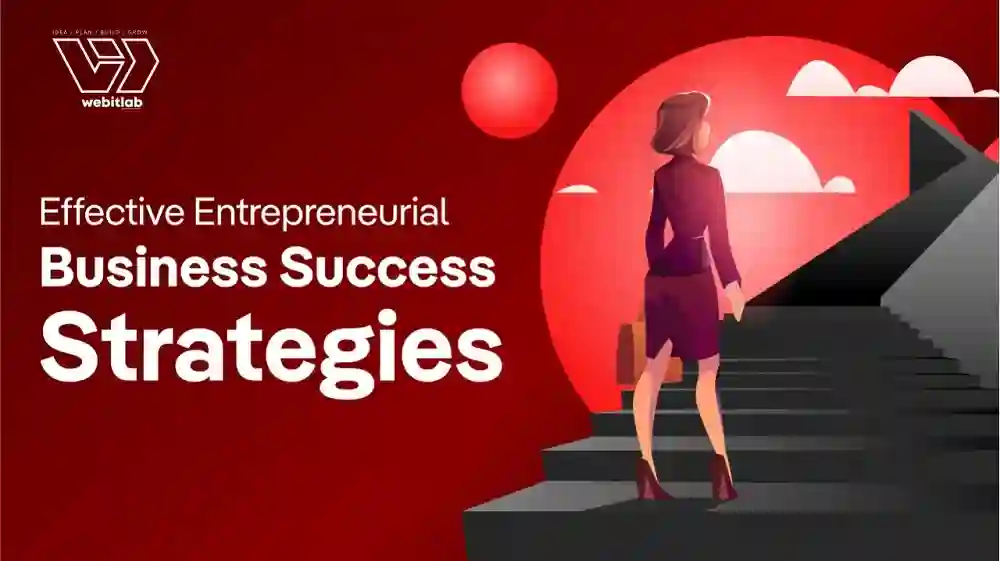Business Tips & Success Strategies for Future Entrepreneurs

Alright, listen up—if you’re thinking of diving into the world of business, then business tips are your lifeline. I learned the hard way that it’s not all about wearing a snazzy suit or posting inspirational quotes on Instagram (though I’ve tried both). No, what it really boils down to is having the right tools, strategies, and mindset to succeed.
Building a business is like starting a fire in the rain: you can’t just sit around and hope things ignite by magic. You’ve got to work at it, plan for it, and, yes, occasionally douse the flames with some reality checks. Let me break it down for you—this is how to lay the foundation for your future entrepreneurial empire.
1. Start with a Clear Vision
I’ve made the mistake of diving into projects without a clear direction—hello, 2017’s failed dog-sitting business (don’t ask). But seriously, starting with a vision is absolutely crucial. You need that one big picture—what’s your business actually about? Beyond profits, what’s the soul of it?
I can tell you, from personal experience, that a vague vision leads to disaster. You’re not just “making money,” you’re building something bigger. Trust me on this one—if your vision isn’t solid, you’ll end up drifting, and nobody wants that. So, define it early on. What do you want to achieve in 5 years? Or 10? Put it down in writing, pin it on your wall, and let it guide every single decision.
2. Market Research: Do It or Fail
Here’s a nugget for you: if you skip market research, you’re basically walking blindfolded into a lion’s den. No exaggeration. In fact, I once thought opening a store selling only vintage vacuum cleaners would be a wicked idea. Spoiler alert: No one cared. Zero customers. Nada.
Market research isn’t just a buzzword; it’s your reality check. I didn’t bother to check what people actually wanted. Instead, I dreamt up a product no one needed—definitely learned that lesson the hard way.
Here’s the thing: to really succeed, you’ve got to dig deep. Understand your audience like you understand your own bad habits. Get to know what they want, what they need, and—most importantly—what they’ll pay for. Track competitors, scan social media, and ask your potential customers questions. Get your hands dirty. Be the detective.
3. Create a Business Plan
Yeah, yeah, I know—a “business plan” sounds like a thing you only write when you need investors to take you seriously. But honestly, it’s like drawing a map before you take off on a road trip. Without it, you’ll be driving in circles, wondering why you ended up at a dead-end. (Don’t ask me how I know this.)
A business plan isn’t some long, boring essay (trust me, I’ve Googled plenty of those). It’s just the skeleton of your business—where you’re headed and how you’re getting there. You’ll want to include:
- Executive Summary: A brief snapshot. Keep it snappy.
- Company Description: This is where you brag about what makes your biz special.
- Market Research: Don’t forget to tell us why the world needs your offering.
- Marketing Strategy: How will you actually get the word out? Facebook ads? TikTok dances? You do you.
- Financial Projections: Here’s the thing—don’t get too dreamy. Numbers matter.
- Risk Analysis: What could go wrong? (Spoiler: a lot, but we’ll get there).
When I started my first business (again, don’t ask about the vacuum cleaner fiasco), I just winged it. Big mistake. Having a business plan means you’re actually thinking ahead—and it saves you from most of the headache later.
4. Finances: Learn the Basics
Let me tell you, managing finances is the number-one thing I’m still learning about. Like, seriously—sometimes I feel like a child when it comes to budgets. Anyway, you’ve got to get a grip on your business finances from the get-go. I mean, do you really want to be that person who’s digging through receipts in a panic when taxes roll around?
Tip one: Always separate your personal and business accounts. Trust me. I didn’t at first, and I almost got in trouble with the IRS. (Yeah, that was a whole thing.)
Also, get an accountant if you can. I finally gave in, and oh my god, best decision ever. It’s worth the cost, especially if math isn’t your thing. But if you can’t swing that, make sure to use accounting software like QuickBooks. It’s a lifesaver when you’re juggling invoices, payroll, and—you guessed it—unforeseen costs.
5. Build a Memorable Brand
I’ve had brands that failed and some that actually worked. Let me tell you: the difference is huge. Your brand isn’t just your logo. It’s the vibe, the energy, the thing that makes people choose you over your competition.
Want to hear something funny? My first brand attempt was so generic it could’ve been mistaken for a discount store. It had no personality—none. The colors were all wrong. The fonts were so boring. If my business had a face, it would’ve been the guy you avoid at the grocery store.
But a strong brand sticks with people. Think about your favorite companies—whether it’s Patagonia, Nike, or even your local bakery. Their branding speaks to you. They have a voice. Develop your own and use it consistently. If your branding doesn’t feel real, it won’t resonate with anyone.
6. Networking Is Everything
Okay, let’s talk about networking—no, it’s not just a bunch of handshakes and awkward small talk. When I started out, I thought networking was just a formality, and boy, was I wrong.
I’ll never forget my first “networking” event. I was the only one who hadn’t perfected my “business pitch.” I ended up spilling my drink on the guy I was supposed to impress. (Not my finest moment.) But here’s the thing: networking isn’t just about talking business. It’s about building relationships.
Find your tribe. Meet people who are doing what you want to do, or who can introduce you to the people who are. Go to events. Sign up for online groups. Heck, make friends at the local coffee shop. You never know who’ll be your next collaborator, mentor, or even customer.
7. Adaptability Is Key
My first business pitch? It bombed. Badly. I’m talking crickets. So, I did what any reasonable person would do: I reworked everything. Again. And again. And again.
The ability to adapt is what keeps businesses alive. It’s not about having a perfect product right out of the gate. You will screw up, and that’s okay. The secret is adapting quickly, learning from mistakes, and keeping your eyes on the prize.
Adaptability doesn’t mean giving up your vision. It just means being flexible enough to make changes as needed. Sometimes, the market will show you something you didn’t expect—and you’ve got to roll with it.
8. Embrace Tech Tools
The right tools can make or break you. My first “business setup” involved a sticky note system and Excel sheets that were more complicated than my college math finals. Eventually, I got wise and turned to tech. Now? I use project management software, accounting apps, and even automation tools to handle stuff I used to stress over.
Get on board with tools like Asana for project management, Canva for branding, and Stripe for payments. They’ll make life easier, trust me. You’ll get more done and still have time to sleep.
9. Customer First
No one ever succeeded by ignoring their customers. I don’t care how great your idea is—if your customers aren’t happy, you’re done. Take it from me: the best way to keep them around is by actually listening.
And not just “Oh, thanks for your feedback” listening. I mean really listening. Talk to your customers, solve their problems, and deliver more value than they expect. It’s the best way to build loyalty—and repeat business.
10. Persistence Over Perfection
Here’s the kicker: business success doesn’t happen overnight. You won’t get it perfect on your first try. (Trust me, my first sales pitch was more cringe than charisma.) But persistence? That’s a whole other story. Keep going. If something doesn’t work, fix it. Then fix it again. Just don’t stop trying.
Fast forward past three failed attempts, and you’ll find yourself ahead of the game. So, stay consistent, keep grinding, and believe in your ability to figure things out.
Final Thoughts
Starting a business is a rollercoaster ride, and yeah, sometimes you’ll feel like you’re hanging upside down while trying to fix a broken wheel. But with a clear vision, some solid planning, and a heap of persistence, you’ll make it. Stick with these business tips, and remember—success isn’t a straight line. It’s a crazy zigzag. So hang on tight and enjoy the ride!







